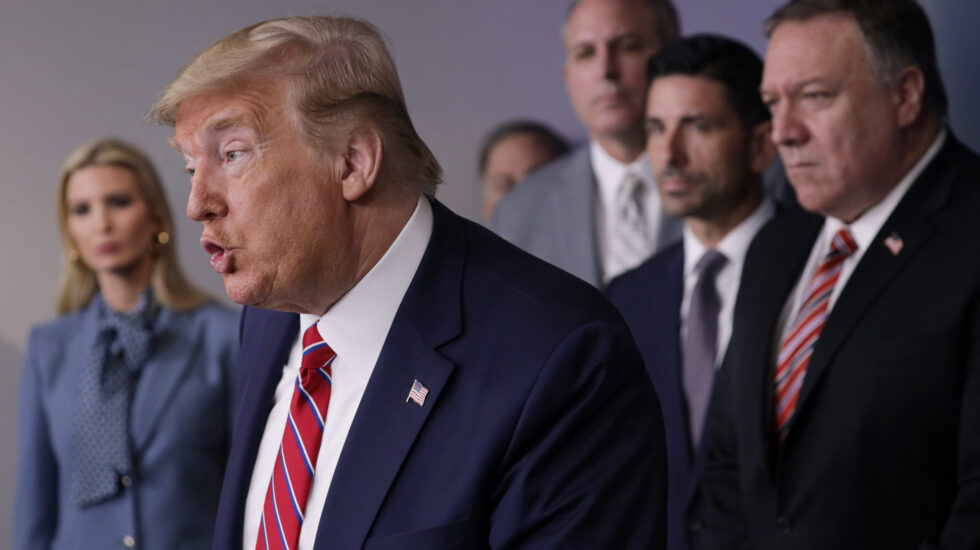With so many questioning Donald Trump’s handling of the coronavirus crisis, there is understandable skepticism over his latest poll numbers. NPR writes:
Trump has hit his highest approval rating since becoming president – 47%, according to an average of the polls. That’s an increase of nearly 3 points over the last two weeks.
On Trump’s handling of the pandemic, Gallup found 60% of American adults approve. A Fox News poll out Thursday found it lower, at 51%. Reuters/Ipsos and Economist/YouGov polls similarly had it at 49%.
While Trump’s numbers are higher than usual, most presidents experience a bump during times of crisis. For instance, George W. Bush’s approval rating rose to around 80-90% in the four months after 9/11. In the Washington Post, Fareed Zakaria wrote:
When a crisis hits the United States, the country’s general instinct is to rally around the flag and wish the best for its leaders. That’s probably why President Trump has seen his approval ratings rise, even though he has had a delayed and fitful approach to this pandemic. But at some point, we Americans must look at the facts and recognize an uncomfortable reality. The United States is on track to have the worst outbreak of coronavirus among wealthy countries, largely because of the ineffectiveness of its government.
The reality is as time goes on and the death toll rises, people may change their mind about whether they truly approve of Trump’s handling of this crisis.
David A. Hopkins, a political scientist at Boston College writes:
These popularity bumps fade with time. Either the crisis is soon resolved and citizens turn their attention to other things, or it is not, in which case they start to grow impatient with the effectiveness of their leader. The 2020 general election is still far enough away that even if Trump were to benefit from the rally effect in the short term, it wouldn’t be a very reliable signal of his popularity more than seven months in the future.
